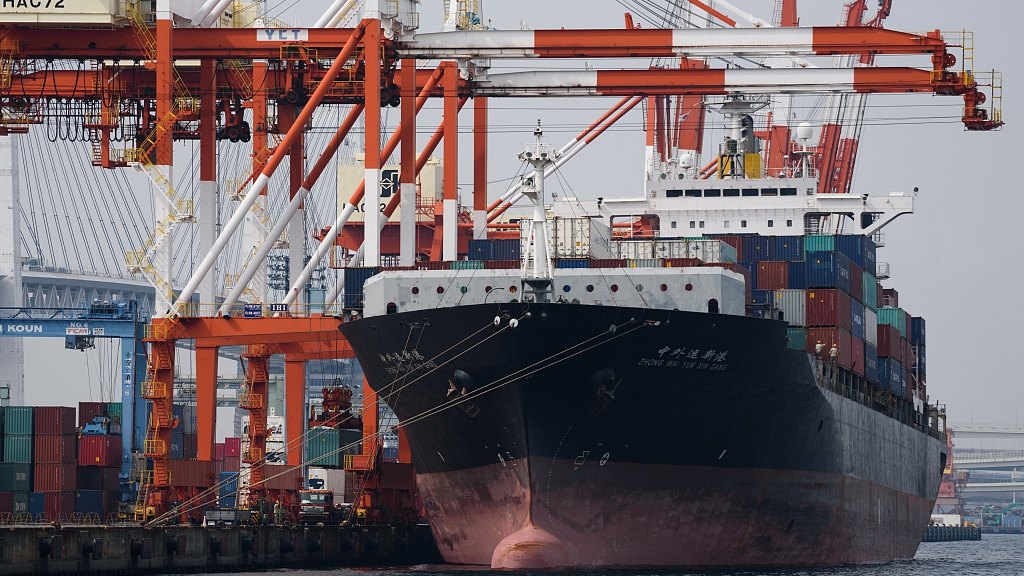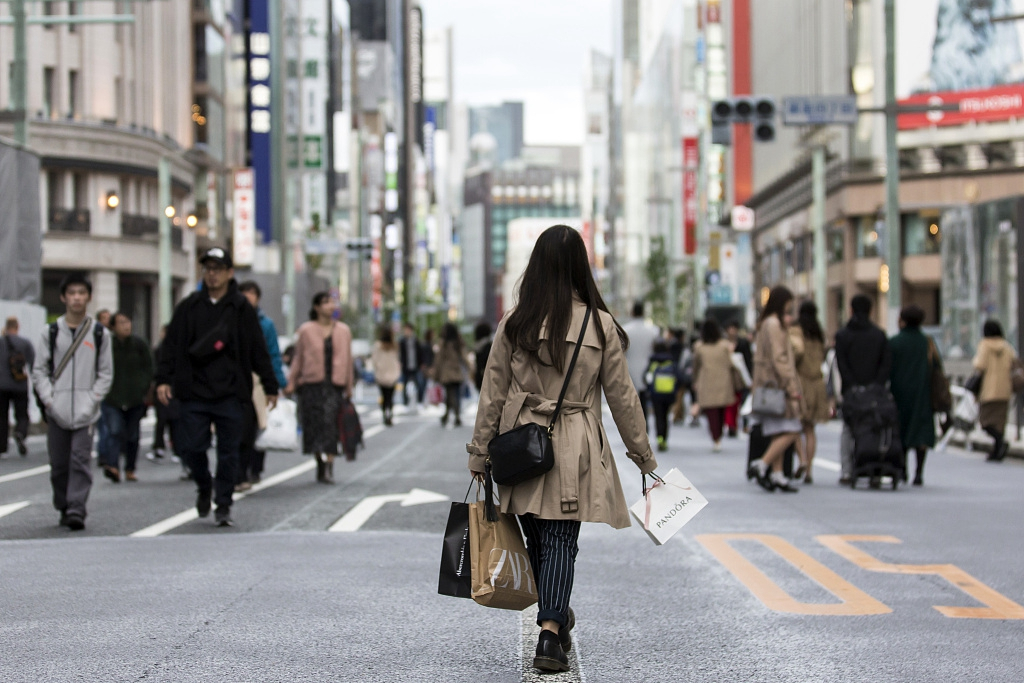
Economy
12:44, 22-May-2019
Japanese exports slump for fifth consecutive month
CGTN

Japanese exports fell for a fifth consecutive month in April, the Ministry of Finance reported Wednesday amid ongoing concerns over global demand and trade tensions.
Data showed a 2.4-percent year-on-year drop in exports last month, matching the same rate of decline as March.
Shipments to China, Japan's biggest trading partner, fell by 6.3 percent according to the data release. Exports to Europe also saw a significant drop of almost three percent.

Uncertainty over consumption remains a headache for Japanese economists. /VCG Photo
Uncertainty over consumption remains a headache for Japanese economists. /VCG Photo
However, exports to the U.S. increased by 9.6 percent, led by shipments of automobiles.
U.S. President Donald Trump is set to arrive in Tokyo this weekend for talks with Japanese Prime Minister Shinzo Abe after Washington earlier this month announced a 180-day reprieve on imposing punitive tariffs on Japan's auto sector.
Despite the slump in exports, Japan posted a surprise GDP growth of 2.1 percent in the first quarter. Disappointing consumer data had led most analysts to anticipate an economic contraction, but the numbers behind the surprising growth suggest there is still reason to be pessimistic for Tokyo.
Pessimism remains despite positive Q1 GDP data
Imports fell at a faster rate than exports in the first quarter, meaning Japan's net export data skewed the GDP figure. The 4.6-percent decline in imports in the first three months of the year was the worst quarterly drop in a decade, with weaker domestic consumer demand pointing to ongoing issues in the economy.
A planned hike (8.0 to 10 percent) to Japan's consumption tax is still set to go ahead in October, Economy Minister Toshimitsu Motegi said following the GDP data release, ignoring calls for the increase to be delayed.
Consumption tax was last increased in 2014, with the hike from five to eight percent blamed for an economic slowdown that year.
While the sense of unease over the Japanese economy remains, a Reuters survey of manufacturers showed an increase in business sentiment for the first time in seven months.
That slight increase in confidence coincided with a 3.8-percent month-on-month uptick in core machinery orders. Seen as an important indicator of domestic capital expenditure, machinery orders endured a torrid 2018, falling by as much as 17 percent last September.

SITEMAP
Copyright © 2018 CGTN. Beijing ICP prepared NO.16065310-3
Copyright © 2018 CGTN. Beijing ICP prepared NO.16065310-3